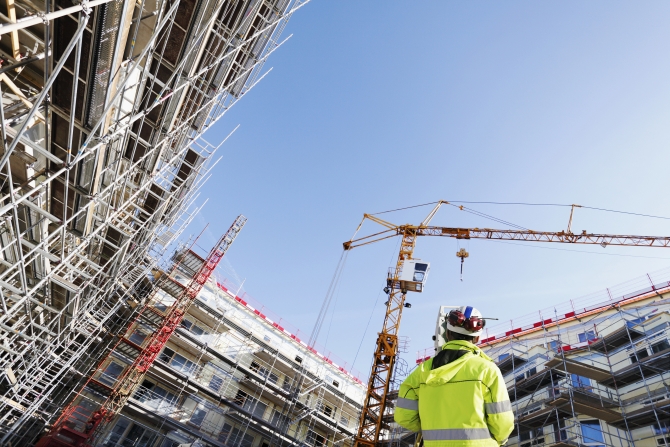Although the pace of manufacturing output has slowed slightly in the West Midlands, the region is benefitting from the sharp rise in UK construction activity, with the local workload reaching levels not seen since 1994.

According to the RICS UK Q3 Construction Market Survey, the past quarter saw a steep rise in residential and commercial activity, particularly in the West Midlands. On a regional basis, 54 per cent more quantity surveyors noted a rise in demand for their services compared to last year, in which only 35 per cent of those surveyed reported a rise in the third quarter.
While growth within the West Midlands private housing sector was robust, with 59 per cent of surveyors witnessing an increase in activity, the commercial sector enjoyed an even steeper rise.
In total, 74 per cent of surveyors reported an increase in their commercial workloads, in part due to the activity surrounding projects including HS2 and the redevelopment of Birmingham New Street station.
In fact, all areas of construction managed to record growth during the third quarter, although not all were demonstrating the boom in demand shown by the housing and commercial sectors. Infrastructure growth, for example, remains comparatively stagnant, with only 29 per cent more surveyors noting a rise in activity levels.
Chairman Tim Jones of the West Midlands Quantity Surveyor and Construction Group, believes the construction industry and the Government have a joint responsibility to ensure the pace of growth is allowed to continue.
He says; “This is fantastic news for the region and it is particularly pleasing that both the housing and the commercial sectors are showing sustained growth.
“Infrastructure is lagging behind a little, but with significant infrastructure projects in the pipeline this sector also has a promising outlook.
“In the West Midlands we need the Government to continue being supportive in enabling the construction industry to grow and allow us to build on the strong recovery that is happening – as an industry we need to respond by increasing investment in training and development of the workforce at all levels and finding ways to encourage new entrants into construction, property and infrastructure sectors.”
As with the manufacturing industry, it appears that a lack of skilled workers and needed materials will be the greatest problems facing the construction industry’s growth in the short term. Demand for bricklayers, for example, increased strongly since the second quarter, with 71 per cent of respondents now citing this as a serious issue compared to 59 per cent in Q2.
Similarly, 65 per cent of respondents cited a shortage of quantity surveyors as a key inhibitor of growth during the quarter, indicating that action must be taken in order to allow recovery to gather momentum. Yet with apprenticeships close to reaching an all-time high, the question is what more the industry can do to ensure job roles can be filled in the future.
Previous Post
Show goes on as Granada HQ becomes Entertainment Hotel